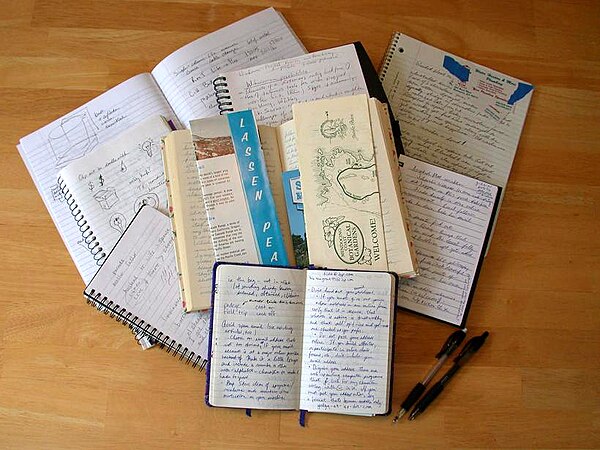บทสนทนา/ข้อสรุป
|
บทสรุป: คำถามที่ยากความขัดแย้งทั้งหมดที่อธิบายไว้ในรายงานนี้ขึ้นอยู่กับสาเหตุที่ฝังรากลึกและยังไม่ได้รับการแก้ไขจนจบ ไม่มีความขัดแย้งเหล่านี้สามารถดูได้ด้วยความเหงาและไม่มีทางออกง่ายๆที่สามารถพัฒนาได้หากปราศจากความเข้าใจที่ลึกซึ้งและพูดคุยตรงไปตรงมาเกี่ยวกับสาเหตุในตอนแรก เพื่อให้การเคลื่อนไหวสามารถแก้ปัญหาเหล่านี้ได้อย่างทั่วถึงต้องใช้ขั้นตอนกลับและพิจารณาใหม่ สิ่งอื่น ๆ จะเป็นเพียงการแก้ไขอาการและการเคลื่อนไหวจะพบว่าตัวเองเผชิญหน้ากับปัญหาเดียวกันซ้ำแล้วซ้ำอีก บทสนทนาของบทสนทนาในบทนี้จึงพิจารณาว่าจะไม่มีความรับผิดชอบมากในการเสนอแนวทางแก้ไขปัญหาใด ๆ "คำถามที่ยากลำบาก" กลั่นจากข้อมูลเชิงลึกที่จำเป็นต้องได้รับการแก้ไขอย่างเร่งด่วนและตอบในลักษณะที่เปิดเผยและครบถ้วน:
The current way things are at present inhibits the movement from striving effectively for Free Knowledge. Instead of using its full potential to further its mission, it revolves around itself. The common mission is at serious risk if the movement won’t tackle the causes of its problems. Complaining is easy, finding solutions is hard. The tough questions can only be approached in a structured and professional way, with dedication and commitment. There is no point in tinkering with the symptoms and finding single-problem solutions. The interviews carried out as part of the Chapters Dialogue were a safe way to bring the critical conversations and rumours to the surface. The insights now clearly point to the elephant in the room. They provide a comprehensive overview; one that we never had before. The Chapters Dialogue does not present simple solutions, but does put forward a recommendation. These insights need to be built upon and a sequel needs to be initiated. Design of a frameworkWe need to reflect on what has made the movement successful so far. What do we take with us, and what do we leave behind? Imagine a movement that is built on trust, that stands united, and that is capable of leading an open dialogue. A movement with clarity about its impact and roles as well as stability to strive for changing the world. A Wikimedia that balances independence and committed obligations. A change of perspectives is essential to overcome the perceptions and old narratives that are still etched in the Wikimedia memory. Only a deep and profound understanding can provide the basis for change. As a result of the Chapters Dialogue, we recommend initiating a project that builds on these insights and takes the experience of other movements and organisations into account. The next step must be the design of a framework for the Wikimedia movement within which it can work strongly and effectively towards its mission in a professional way, yet stay true to its grassroots and maintain its diversity. The sequel aims at closely coordinating with the WMF Board of Trustees and Executive Director, and at adopting a participatory and culturally appropriate approach. It leads to the design of a set of specific recommendations for action. By sticking to an iterative development and an agile implementation process, this approach will ensure the involvement and ownership of the key movement players. Working with pilot projects prevents the movement from stagnating and can show first results in less than a year. We consider this next step essential for the movement to unfold its full potential in the future. |
You can check the summary of the report
Lost in report?
Go back to
|



